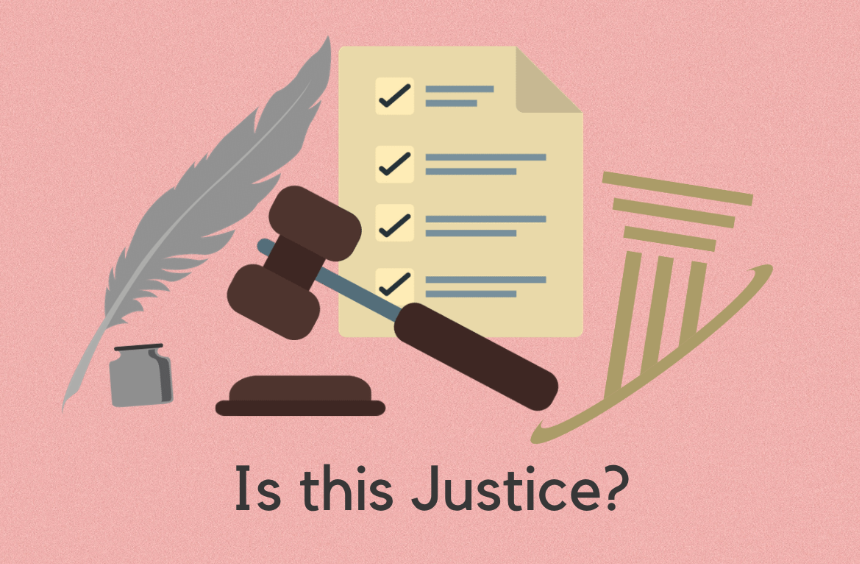“California is more than just a state of dreamers, we’re a state of doers. Thanks to the Legislature’s strong partnership in 2023, the state is leading by example to create opportunity, and advance and protect the rights of all Californians,” said Governor Gavin Newsom.
It is certainly true that California is implementing a long list of new laws starting in 2024, but that does not necessarily mean they will protect our rights. Looking critically at some of the laws that were put in place starting Jan. 1, one starts to wonder what the future of California will hold. With a few exceptions, these laws are all strong first steps, but to truly lead by example, there needs to be a lot more change.
Large retail stores (those with 500+ employees) that sell childcare items or toys are now required to maintain a gender-neutral toy section.
On the surface, this will have many financial and social benefits, but in the long run, it seems unlikely to have much of an impact. Yes, this law will mitigate issues like the pink tax, but with so much shopping online, it almost feels like this change is too late. Only “retail department store[s] (sic) physically located in California” are impacted by this law, not their website counterparts. This, coupled with the ever-present pressure of gender norms, all but makes this law irrelevant.
A gender-neutral toy aisle is useless in a society that pushes pink on girls and blue on boys. These stereotypes have certainly lessened in recent years, but they are still an overbearing divide in both the real and retail world. How are children supposed to learn gender neutrality when their mothers shop on one side of the store and their fathers on the other?
This law has incredible intentions, but it will most likely lose the uphill battle it has to fight.
All California workers must now receive a minimum of 40 hours or five days of paid sick leave by their 200th calendar day as an employee. Previously, this requirement did not include certain employees.
In the post-pandemic world, staying home when sick is incredibly important. This law is certainly a step in the right direction, particularly as quarantine showed that many occupations can operate remotely. In addition to paid sick leave, in order to further encourage employees to stay home when they are ill, there should be an option to work remotely, whenever possible. This would not only decrease spreading sickness but also increase productivity for some professions.
Employers now have to offer time off for reproductive loss, defined as “the day or, for a multiple-day event, the final day of a failed adoption, failed surrogacy, miscarriage, stillbirth, or an unsuccessful assisted reproduction.” This leave cannot be refused and may be up to five days.
This law is immensely important, one that both makes a small advancement for women’s rights while also sensibly correlating with bereavement leave. The biggest issue with both this law and California rules on bereavement leave is that this time off can be unpaid. Just as employees get paid sick days, reproductive leave should be mandated as paid time off.
It is now unlawful for employers to ask potential hires about their prior use of cannabis or discriminate against them for any outside use of the substance, such as termination due to cannabis appearing on a drug test from an indeterminate time of use.
Considering California is one of 24 states in which non-medical cannabis use is legal, there is no reason for private use to be a factor in the employment process. This could potentially become an issue if repercussions for outside use of cannabis impacting the workplace become more difficult to enforce, but otherwise, this law should help to continue laying the groundwork toward discrimination-free working environments.
Homeless individuals will now be able to receive opioid addiction treatment from mobile pharmacies.
Since these mobile pharmacies previously could not dispense buprenorphine, the controlled substance used to treat opioid addictions, this led to some of the overdoses from the opioid fentanyl. Considering many of those impacted by fentanyl are teenagers, it seems that there should be more emphasis on treating the issue with the high school demographic. That being said, this law will likely only help the ever-growing homeless population in California. This is not the only new law addressing fentanyl, however.
There is an increased potential prison sentence for distributing large amounts of fentanyl, adding the substance to the list that includes both heroin and cocaine.
Similar to the law regarding opioid addiction treatment, this will presumably help the fentanyl issue. Still, something must be done to prevent the distribution from happening in the first place. Additionally, given many fentanyl-laced products are acquired through the Internet, punishment for the act may prove to occur in only a small percentage of cases.
The crime of human trafficking of a minor will now be considered a serious felony, a term that also encompasses crimes such as murder and rape.
Making child human trafficking a serious felony increases the potential penalties for the crime. This is certainly an important step in tackling this issue, but considering California consistently has the most human trafficking cases in the U.S., this needs to be the first in a series of changes if the problem is truly going to be remedied. Much like with many of these new laws, this is a good starting point, but it cannot be the only way California tackles human trafficking.
California’s state hourly minimum wage is now $16.00, increasing by $0.50 from 2023.
Given the cost of living in modern society, the minimum wage needs to be as high as possible. However, increasing it too much in a short period would have detrimental impacts on the economy, meaning incremental increases such as this are the best way to make any progress.
Employers now must give 30 days notice of a switch to in-person working to any employee currently working from home.
A sudden shift from at-home to in-person working is certainly something that could have detrimental effects on employees, something this new law mitigates. However, this may prove to have consequences for employers should they have a sudden need for in-person workers. This is likely an uncommon scenario, and given the benefit this law will provide for most at-home workers, it certainly seems that this will only improve working conditions.
Tenants of rent-controlled units whose rental agreements commenced before Jan. 1, 2000, and who have permanent physical disabilities can now move to a comparable unit in a more easily accessible part of the property, in properties with four or more units for the same rent.
While this seems beneficial to the disabled community, the scope of individuals this law actually applies to is very narrow. This only applies to rent-controlled units with leases dating back to before 2000. For this law to truly have widespread benefit, it should apply to renters with any kind of lease from any year who have permanent physical disabilities. Yes, this law is likely designed to protect the elderly who are grandfathered in with rent control, but those suffering from similar disabilities should still receive the benefits of this new legislation.
The credit history of a person receiving government rent subsidies can no longer be requested in the rental application process. This adds to the California Fair Employment and Housing Act which previously prohibited the use of financial or income standards in the rental application process.
This is certainly favorable to the low-income community, but one must wonder if this supplement will lead to alternative forms of discrimination. A renter who is precluded from looking at a person’s finances instead may employ selection criteria such as appearance, age, race, etc. This, of course, took place before, but despite the direct benefit to renters, it seems entirely possible that alternative avenues of prejudice may be the unintended outcome of this new law.
Resource families (families who care for children in the foster care system) must now be able “to demonstrate an ability and willingness to meet the needs of a child, regardless of the child’s sexual orientation, gender identity, or gender expression” as well as supporting “children of all races, ethnic group identifications, ancestries, national origins, colors, religions, sexes, sexual orientations, gender identities, mental or physical disabilities, or HIV statuses in foster care.”
While attempting to ensure foster youth’s placement in gender-affirming, racially inclusive, etc. households is crucial, this is not something that can be solved with one law, as inclusivity like this could prove to be difficult to determine. Once again, this is an incredible first step, but it cannot be the only thing done to protect foster children from discrimination.
The California Highway Patrol now has an Ebony Alert emergency notification. This alert is to be used if Black youth go missing.
Previously, there were five emergency alerts in California: AMBER alerts for individuals 17 and under who have gone missing, Blue alerts for missing law enforcement, Silver alerts for individuals 65 and older who have gone missing, Feather alerts for missing indigenous individuals and Yellow alerts in the event of a fatal hit and run. Given these pre-existing emergency notifications, an additional Ebony alert makes perfect sense. However, should prejudiced individuals selectively choose which emergency alerts to pay attention to, having race-based alerts could prove to be more harmful than effective, not to mention the fact that the names “Ebony” and “Feather” have a somewhat uncomfortable feel to them given the groups they represent, but that is an unrelated issue. One can only hope that this additional alert will be helpful to California’s African American community.
“Excited delirium” is now prohibited as a cause of death on death certificates, with additional limitations on official uses of the term in places such as incident reports.
The term is incredibly controversial as the most common use of the diagnosis is with black men who died while being physically restrained by law enforcement. It may be reasonable that prohibiting this cause of death is to combat police brutality, however, this is only one piece of the puzzle as this diagnosis could simply be replaced with another term that serves the same purpose. The law seems to potentially censor reality and it is unclear whether there will truly be any benefits to this restriction.
Law enforcement now must inform a driver of the reason they were pulled over before they begin questioning. The reason for the stop must now also be included in any related police reports.
This change is intended to decrease racial profiling, however, given the included exception in the law, that may still be a hollow dream. The notice does apply in situations where the officer “reasonably believes that withholding the reason for the stop is necessary to protect life or property from imminent threat.” It is conceivable that this could allow police officers to continue to needlessly pull over drivers. This law may be helpful in many cases, but the way it is written could allow for the crisis of racial profiling to persist. That said, it is a step in the right direction.
Overall, it seems that while many of the issues tackled by these new laws may persist throughout 2024 and the years to come, California certainly appears to be, at the very least, making attempts toward equality and progress. No law can solve all problems for all people, but it certainly appears that California is taking steps in the direction of opportunity and protecting the rights of all Californians.















